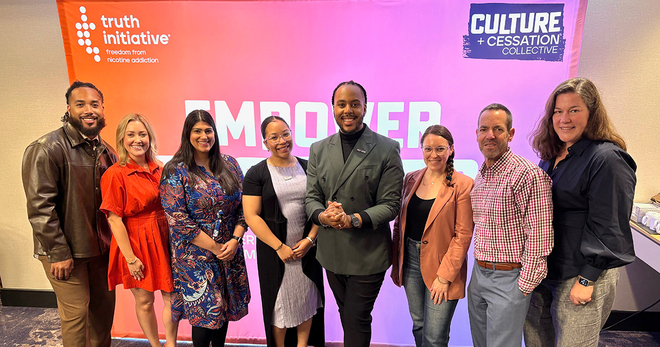the 5 ways tobacco companies lied about the dangers of smoking cigarettes
Cigarette advertising has been banned on TV for almost 50 years, so why are tobacco industry ads appearing on prime time again?
After a court found that they violated civil racketeering laws in 2006, tobacco companies Altria, R.J. Reynolds Tobacco, Lorillard and Philip Morris USA finally began releasing court-ordered ads on TV and in newspapers in November to correct the lies they’ve told for decades about the dangers of smoking cigarettes. In her 1,683-page opinion for the court decision, U.S. District Judge Gladys Kessler documented the many times tobacco companies have lied about the harmful effects of cigarettes and manipulated the public.
Here are just a few examples from Kessler’s decision.
1. Tobacco companies falsely denied that they can and do manipulate the level of nicotine in their products to create and sustain addiction, and have been since at least 1954.
In 1994, the CEO of R.J. Reynolds testified in a public hearing held by Congress that the company does not "add, or otherwise manipulate nicotine to addict smokers” or “do anything to hook smokers or to keep them hooked." At the same public hearing, chairman and CEO of Lorillard testified that “Nicotine levels … are not raised or reduced for particular brands."
2. Tobacco companies “falsely denied, distorted and minimized” the link between cigarette smoking and disease, even though they internally recognized its existence.
The 1964 Surgeon General’s report concluded that smoking cigarettes causes death and disease. However, in a 1971 television interview, the president of Philip Morris denied the health risks that pregnant women and their babies face, saying that “It’s true that babies born from women who smoke are smaller, but they are just as healthy as the babies born to women who do not smoke. Some women would prefer to have smaller babies.”
3. Tobacco companies concealed evidence and publicly denied that nicotine is addictive.
In 1982, the National Institute of Drug Abuse confirmed that nicotine is addictive. A 1994 R.J. Reynolds document, called "Media Tips," stated that “Regardless of how you define addiction, cigarettes are clearly not in the same class as addictive, mind-altering drugs like heroin and cocaine.”
In a 1997 issue of Time magazine, the president and CEO of Philip Morris was quoted as saying "If [cigarettes] are behaviorally addictive or habit forming, they are much more like … GummiBears, and I eat Gummi Bears, and I don't like it when I don't eat my Gummi Bears, but I'm certainly not addicted to them."
4. Tobacco companies “falsely marketed and promoted low-tar and light cigarettes as less harmful” than regular cigarettes to keep people smoking and sustain revenues.
Research has proven that there is no safe cigarette and all cigarettes cause cancer, lung disease, heart attacks and premature death. A 1964 Lorillard memorandum admitted that “KENT was marketed as a ‘safer’ cigarette for the smoker who was concerned about smoking and health. In 1956 when an innocent third party (Reader's Digest) created an awareness to the consumer that KENT was the ‘safest’ of all popular cigarettes, Lorillard exploited this advantage so that within a short period of two years the KENT volume grew from less than four billion cigarettes to thirty-eight billion annually.”
5. Tobacco companies internally acknowledged that secondhand smoke is hazardous to nonsmokers, yet still gave false and misleading public statements denying the fact.
The industry also tried to undermine and discredit the evidence in the 1986 Surgeon General’s report, which concluded that exposure to secondhand smoke is a health hazard to nonsmokers and causes disease and respiratory problems. In 1987, Philip Morris released a series of advertisements that pictured smokers "talking" to the reader, with statements like "Please don't tell me my cigarette smoke is harmful to you. There's just no convincing proof that it is." and "I know there's no proof my smoke can hurt you."
Read “Big Tobacco Forced to Tell the Truth with TV and Print Ads” to learn more about the tobacco industry being forced to tell the truth about the deadly and harmful effects of cigarettes.

More in tobacco prevention efforts
Want support quitting? Join EX Program
By clicking JOIN, you agree to the Terms, Text Message Terms and Privacy Policy.
Msg&Data rates may apply; msgs are automated.


